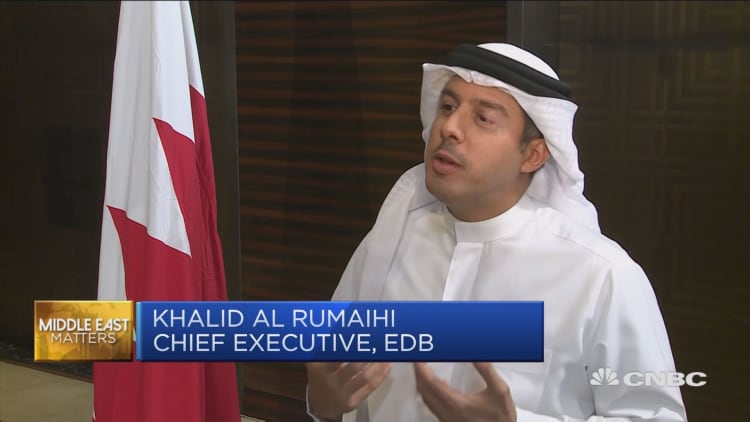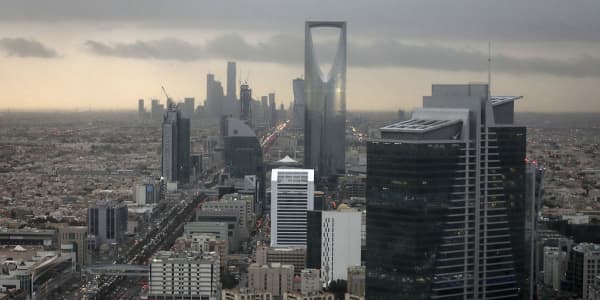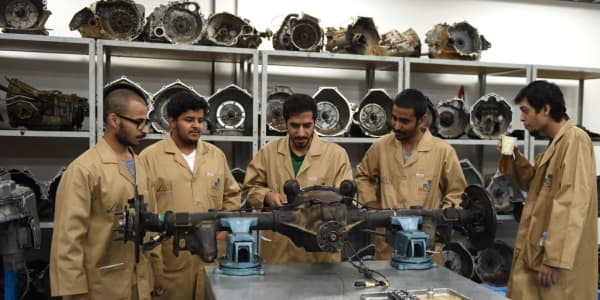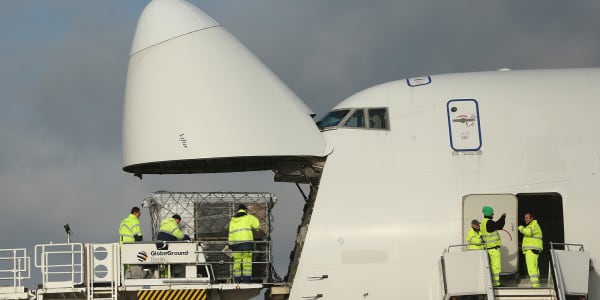Balancing and maintaining economic growth with fiscal consolidation is no easy or popular task, particularly in the Gulf.
Economies in the region are undergoing a transformation from their traditional source of revenue — oil — but that process requires investment and spending, and often higher taxation. These are hard policies to implement when trying to maintain economic growth and is generally unpopular with civilians.
Bahrain Finance Minister Sheikh Ahmed bin Mohammed Al Khalifa, told the Gateway Gulf Investment Forum in Bahrain Wednesday that the challenge facing his country, and the rest of the oil-rich Gulf, was "interesting."
"On the one hand you're dealing with aspirations, you're dealing with goals, you're dealing with the competitiveness of an economy and on the other hand you want to achieve sustainability over the medium term and long term," he said during a panel entitled "Aligning Fiscal Policy to Economic Growth."
"(But) fiscal sustainability is clearly important for long-term investment, investors want to know the economy they're investing in is sustainable."
The oil price fall of 2014 fast-forwarded the necessity for economic diversification among Gulf nations that have traditionally relied on oil for much of their revenues. Major Gulf oil exporters in the region, from Saudi Arabia and the United Arab Emirates to Qatar and Kuwait, saw their economic growth stall and budget deficits rise amid the fall in revenues.
That has prompted a sea-change in government spending in the region with countries within the Gulf Cooperation Council (GCC) — Saudi Arabia, Kuwait, the United Arab Emirates, Qatar, Bahrain, and Oman — having introduced reforms to reduce their deficits, such as implementing a value-added sales tax (VAT) and cutting energy subsidies.

With oil prices rising again, however, the International Monetary Fund (IMF) warned against complacency in its latest regional outlook in May, saying more needed to be done to reform pension and social security benefits.
Speaking at the Gateway Gulf forum, Michelle Lamarche, managing director of Lazard Freres and the global head of Sovereign Advisory, which advises governments and public sector companies worldwide, said the Gulf was doing an "impressive" job at fiscal reform.
"If you look at the region, and it's quite impressive as a fact, the division and foresight that has been demonstrated by the authorities to promote diversification of the economy, to look at what should be done to create the engines of long-term growth, I think Bahrain and the region is moving in the right direction," she said.
Meanwhile, Kuwait's Finance Minister Nayef Al Hajraf said that the challenge was to "re-think how the physical policy will help economic growth."
"We are now moving from the growth itself to sustainable growth and this comes with a sustainable physical policy, such as introducing a VAT policy."
"There is government overspending and let's admit this," he said. He added that the move was not universally popular, as did his Bahraini counterpart, with some complaining about an extra tax burden. Bahrain's finance minister said the introduction of a sales tax was crucial, however.
"VAT is an important part of our diversification and we don't think the 5 percent number will affect the economy negatively ... When you look at the overall tax burden it's very small and what's important is what we do with that money — it goes into social services, our education," he said.





